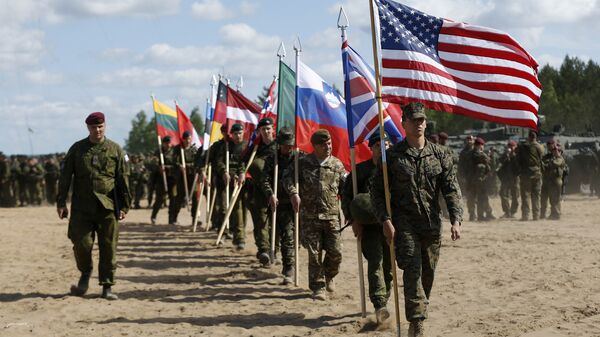According to Robert Naiman, policy director for the think-tank "Just Foreign Policy", there are mainly political motives behind the US' desire to involve NATO in the Middle East. Although every NATO country is already formally a part of the US-organized anti-ISIS coalition, it doesn't mean that all states involved are fully coordinating their efforts. And this is what the United States wants to achieve.
"If you have NATO involved, it is a structure [which] can bind people to a policy. I think this is the main reason for the French objection," Naiman told Radio Sputnik.
However, according to the expert, such countries as France and Germany don't want to be bound to the US' policy and are willing to pursue a more independent strategy. Officially both countries stated that they fear NATO's involvement may increase tensions between Russia and the North Atlantic alliance, but in fact it is rather a pretext which they use to avoid the US' control.
"They don't want to be bound to having the same policy as the US," Naiman said. "So it is more convenient for them to try to distract attention by saying: ‘Oh, well, we don't want to offend the Russians.'"
Replying to the question of whether NATO's involvement will change the situation in the Middle East for the better, the expert said that NATO's participation is unlikely to make a big military change to the situation, but rather a political one.
"The main problem now is not the differences between the US and Russia, and they do exist, but the ability of the US and Russia to control their proxies," Naiman said.
"It is not a military impact. I think it is a political impact," the expert explained, adding that the US' main goal is to bind all its allies, including Turkey and "line them up" on its side.



